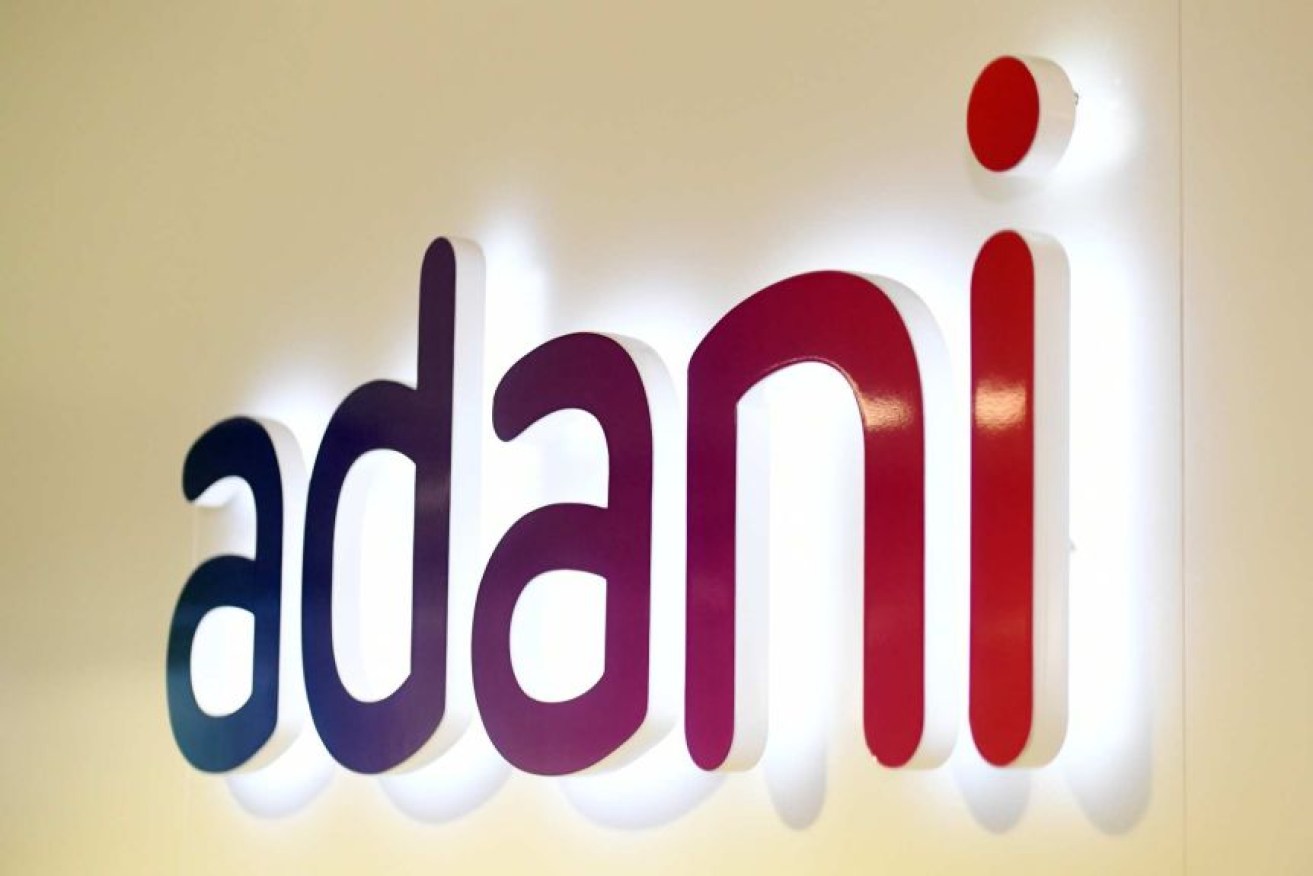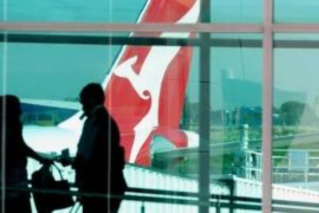Australia’s Future Fund ‘in bed with Adani’ after FOI request reveals $3.2 million investment

The Australian taxpayer-backed Future Fund has invested in Adani. Photo: ABC/AAP
More than $3 million of Australian taxpayers’ money has been invested in an Adani company funding a crucial rail link from the controversial Carmichael coal mine to a port on the Great Barrier Reef, the ABC can reveal.
Documents requested under freedom of information laws by the Australian Centre for International Justice and shared with the ABC reveal the $3.2 million investment in shares by the Future Fund – the $60.5 billion fund set up in 2006 to create returns for the Australian Government.
It comes after the same Adani company – Adani Ports and Special Economic Zones (Adani Ports) – was criticised by the UN for business arrangements that financially support the Myanmar military, which stands accused of the “gravest” crimes against humanity under international law, including genocide.
Rawan Arraf, a human rights lawyer at the Australian Centre for International Justice who submitted the FOI request, said the Future Fund should divest all of its holdings from Adani Ports because of these links to the Myanmar military.

Rawan Arraf said the Myanmar military has overseen a “campaign of terror” against Rohingya villages. Photo:ABC/Rawan Arraf
The revelation has also prompted environmentalists who have campaigned against Adani’s Carmichael coal mine to take aim at the Future Fund.
“Building a new thermal coal mine is the opposite of what we need to be doing to tackle the climate crisis,” said Pablo Brait from Market Forces, a group that has fought to hinder the economic viability of the coal mine.
A spokeswoman for Adani said: “The Adani Group takes seriously the Human Rights Council’s fact-finding report and its concerns about protecting the human rights of all people in Myanmar.”
Future Fund urged to divest investment
In 2019, activists were causing difficulties for Adani negotiating a contract with rail companies to haul coal from its mine to the coast for export.
In September, the ABC revealed Adani had created its own rail haulage business, Bowen Rail Company, to counter that and move coal to the port.
Despite Bowen Rail Company not publicly mentioning Adani, it is entirely owned by Adani Ports.
That linked the Adani subsidiary directly to the Carmichael mine for the first time, making it a major target for activists.

The proposed rail route mining giant Adani will take to haul coal from central Queensland to Abbot Point. Photo: ABC News
In a letter to Future Fund chairman and former Australian treasurer Peter Costello dated November 23, Australian Conservation Foundation boss Kelly O’Shanassy said the shareholding in Adani Ports – revealed by the FOI – meant the Australian public “may be financing key operations of the Carmichael coal mine”.
She wrote this was not only “environmentally unjustifiable”, but also presented reputational and financial risks for the Future Fund in light of the decade-long public campaign against the mine and increasing divestment from coal.
“The Future Fund would be wise to heed the warnings about the Carmichael mine and review its investment in Adani Ports,” she wrote.
“We urge you to remove this equity holding from the Future Fund’s portfolio.”

Australian Conservation Council chief executive Kelly O’Shanassy has written to Future Fund chairman Peter Costello. Photo: ABC/Twitter/Kelly O’Shanassy
The Future Fund is far from alone in investing in Adani Ports, which is a highly profitable part of the Adani Group, with groups such as Allianz and HSBC also investing.
A spokesman for the Future Fund told the ABC it has robust policies around environmental and social issues.
But, he said, the Australian government had no sanctions against Adani Ports.
“In fact, subsidiaries of the company and other parts of the Adani Group have been approved to conduct business and construction in Australia under Commonwealth and Queensland government processes,” the spokesman said.
Executive director of the Australian Centre for Corporate Responsibility Brynn O’Brien said the Future Fund’s environmental social and governance (ESG) policies were “early 2000s style”.
“There are only two categories of companies that are excluded [tobacco and weapons],” he said.
“We would want our sovereign wealth fund to have a much more nuanced approach to due diligence in terms of the full variety of environmental, social and governance issues,” she said.

The Queensland Government gave Adani environmental approval last year, followed by the Federal Government. Photo: ABC/AAP
‘In bed with Adani’
The Future Fund’s investment in Adani Ports has also been criticised by human rights lawyers at the Australian Centre for International Justice (ACIJ), following revelations about the company’s business relationship with the Myanmar military.
Ms Arraf described the Myanmar military’s reign as a “campaign of terror” against Rohingya villages, resulting in serious crimes such as mass killings, torture and rape as well as allegations of genocide.
Adani Ports was singled out in a report by the United Nations from August 2019, investigating business connections between the Myanmar military and other countries and businesses.
That investigation was conducted after an earlier UN report concluded that the human rights abuses appeared to be condoned domestically, and that change could only be driven by international pressure.
The report mapped business arrangements between the Myanmar military-owned companies Myanmar Economic Holdings Limited (MEHL) and Myanmar Economic Corporation (MEC), and other businesses.
It concluded that foreign businesses, such as Adani Ports, working with MEHL and MEC had “a high risk of contributing to, or being linked to, violations of human rights law and international humanitarian law.”

The UN said real estate deals were a major source of revenue for the Myanmar military and that they should not be continued. Photo: ABC News
It described Adani Ports’ engagement with the military-owned companies as a “stark example” of one of the more direct ways that foreign businesses work with them.
Adani Ports was also leasing land in Yangon from MEC, one of the military-owned companies, for 50 years, in a $290 million project to construct an international port.
The UN report said that no business should “remain in a business relationship of any kind with the security forces of Myanmar”.
In July last year, senior military figures from Myanmar, including the commander in chief, visited India and met with Adani Ports, where gifts were exchanged.
“Adani is in bed with the Myanmar military and now it seems the Future Fund is in bed with Adani,” Chris Sidoti, an Australian lawyer and member of the UN’s Independent International Fact-Finding Mission on Myanmar, said.
“Australia’s sovereign wealth fund should follow the lead of similar funds in other countries [moving] towards disinvesting from companies in league with Myanmar’s murderous military.”

Chris Sidoti said the Future Fund needed to act. Photo: ABC News/Ruth Fogarty
Mohammad Junaid is from the community organisation Burmese Rohingya Community in Australia. He came to Australia with his family as a refugee and is now an engineer.
Mr Junaid said he was shocked the Future Fund has invested in a company doing business with the Myanmar military.
“Our message is simple, stop funding the pockets of the military which has allowed them to commit genocide against my people,” he said.
The Adani spokeswoman said the deal with MEC went ahead after “extensive due diligence”.
“While some nations, including Australia, have arms embargos and travel restrictions on key members of the military in place, this does not preclude investment in the nation or business dealings with corporations such as MEC,” the spokeswoman said.
She said the Myanmar operations had nothing to do with the Australian operations of Adani, which “operate under Australian law and regulations”.
“The Adani Group’s vision is to help build critical infrastructure for nations across key markets and help in propelling economic development and social impacts,” the spokeswoman said.








